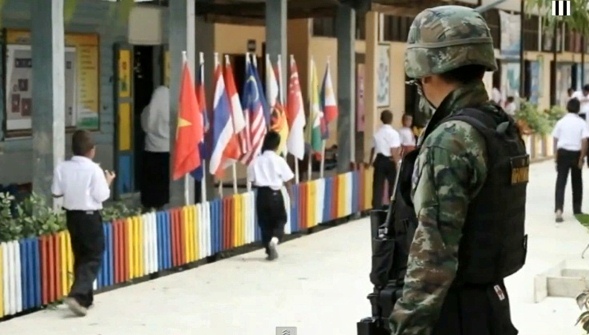
I am one of millions of westerners living in a developing country. Up until recently the country I live in, Thailand, wasn’t a developing country anymore. But, due to new political instability, Thailand is rapidly reverting back towards being a developing country and, because of that, there are certain crises I and tens of thousands of other westerners living here prepare for.
In fact, for westerners living in a developing country, make sure you prepare for the following types of crisis too then, if you’re unlucky enough to experience one of them, you’ll have less problems.
Rapidly Appreciating Currency – A rapidly appreciating currency can be a problem if you’re living on income that’s coming in from outside the country. Suddenly, the amount of local currency you get every time you exchange another country’s currency falls, and making ends meet can be a problem.
For this type of crisis, make sure you have a financial cushion in a safe place in the developing country you’re living in. That way, if you’re suddenly getting 10% less in the exchange rate every month, your savings can make up the difference until the currency falls again.
Rapidly Depreciating Currency – One thing westerners living abroad in a foreign country may experience if they live there long enough is a rapidly depreciating currency. Many developing countries have unstable currencies and major, or even minor, crises can cause the country’s currency to depreciate quickly.
Depreciating local currency is only a problem if you’re planning on moving to another country or traveling overseas. To prepare for this type of crisis, always have money in a more stable currency like the dollar, the yen or the yuan, just in case the local currency suddenly takes a dive.
Political Instability – Thailand has been experiencing political instability for more than four years. If you too are living in a country that has a politically unstable government or could have one down the road, make sure you have cash on hand (ATM’s and banks often get closed down in a crisis), have batteries available in case the electricity gets turned off and enough bottled water for a week’s worth of drinking and washing.
Stocks of packaged or canned food are also important. Plus, always make friends with the locals as you’ll find, during political instability, they can be a godsend in helping with any problems you experience.
Finally, always have an open ended plane ticket back home, so you can get out of the country if the government does collapse and things turn deadly.

Military Coups – Unfortunately, a fair number of developing countries do have military coups at one time or another. I experienced the last military coup in Thailand four years ago and, other westerners living in a developing country, experience them too.
To prepare for a military coup, make sure you have a week’s worth of food at home. After a military coup, things can be unstable for a few days to a week or more and, particularly if it’s a dangerous one (Thailand’s wasn’t), you don’t want to be out on the streets looking for food if there’s shooting going on.
Have an emergency medical kit on hand because, if you’re sick during a coup, unless it’s life threatening you’re often better treating yourself than going to a hospital.
Batteries too are important as, if the electricity is turned off, you need to be able to listen to a radio for continually updating news about the situation. Being up to date on what’s happening outside during a coup can be the difference between life and death.
Make sure you have emergency phone numbers handy as well as phone numbers of friends, and that you know where the local hospital is. And again, always have an open-ended plane ticket out of the country.
Natural Disasters – Many developing countries have natural disasters and living in one during one of these crises can be scary. However, being prepared can make the situation easier to deal with and a lot less stressful.
First, have an evacuation plan in place so, if there is an earthquake, tsunami, fire, flood, hurricane, tornado or mud slide, you know where all your family or friends should meet.
Learn about the developing country you’re living in and what natural disasters it’s susceptible to. If it’s an earthquake, have an earthquake preparedness kit. For a tsunami or a flood, know where the higher ground is and how to get there quickly.
For fires, don’t live in buildings with lots of trees around and invest in a fire extinguisher, and on and on. Discover the natural disasters the developing country you’re in might have, then prepare for each one. Being prepared in a natural disaster can save you precious seconds and, thus, your life.
